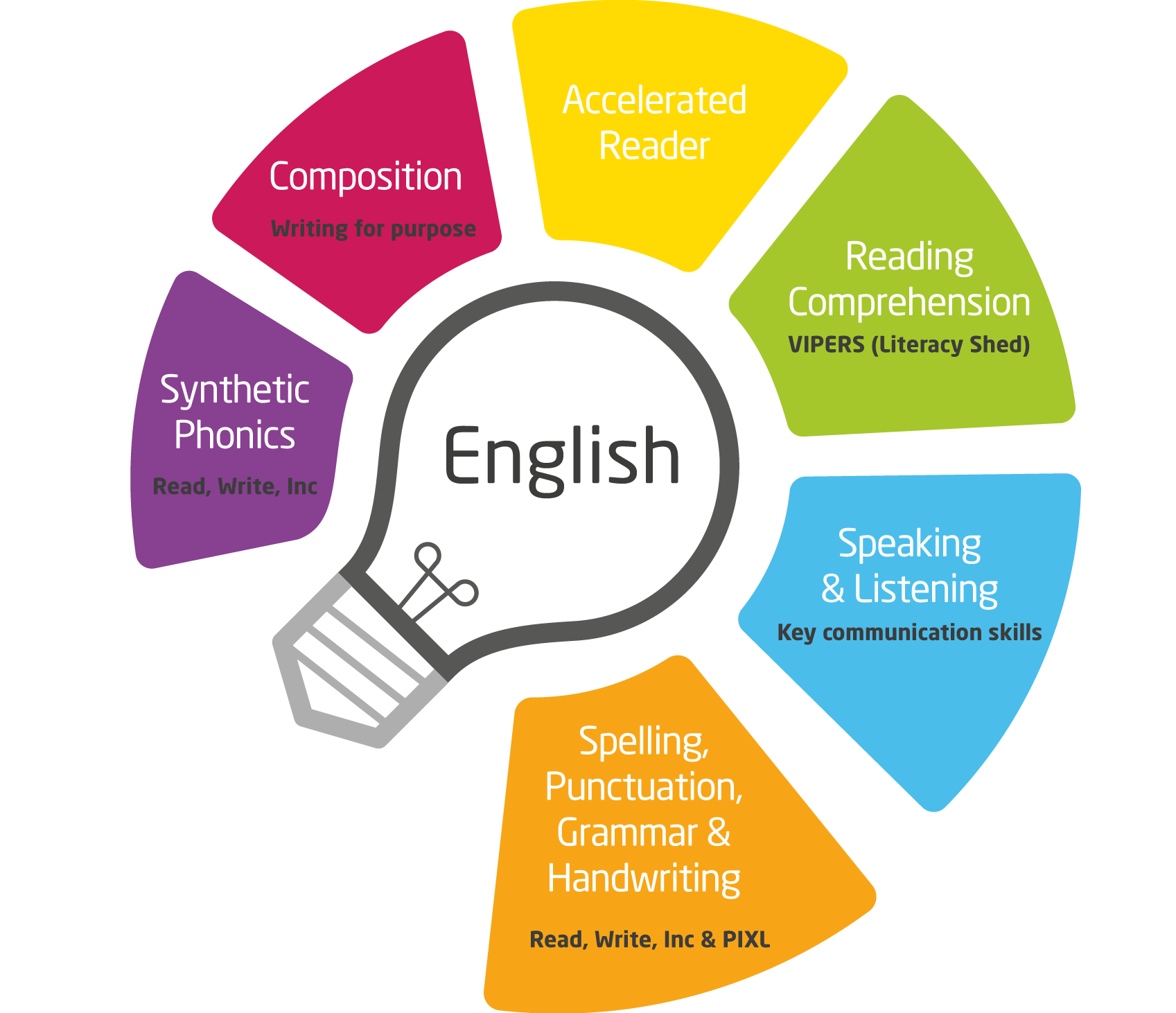Intent
We aim to engage and inspire children in both reading and writing. It is our intention when teaching the English curriculum that our pupils acquire the necessary knowledge, skills and understanding to become lifelong learners.
Phonics and Spelling
The school follows a rigorous and systematic approach to the teaching of synthetic phonics supported by Ruth Miskin’s ‘Read Write Inc’ phonics scheme of work. Our approach to phonics establishes consistent practice, continuity and progression in the teaching and learning of phonics.
Speaking and Listening
We support our children in developing the skills necessary to read, write and speak fluently to communicate their ideas and emotions. Through our exciting and engaging curriculum, we actively encourage our children to communicate their thoughts and ideas. Children are given the opportunity to reflect on both their learning and feelings.
Reading
Reading is a key tool for life. Teaching children to become confident and fluent readers, by developing a love and passion for reading is a large and exciting part of what we do. Our children are exposed to a wide range of genres and high-quality texts that engage the listener, develop a breadth of vocabulary and support ideas for writing. We use VIPERS to support our reading comprehension approach children have the key skills to appreciate and understand literacy texts.
Writing
Writing is an essential part of the curriculum; we are ambitious about what all children can achieve, and we strive to create exciting and stimulating writing opportunities for all children. We aim to ensure that all children leave our school with a passion for writing and a high level of English knowledge and skills that they can apply in a variety of subjects and situations. Writing skills are developed through a high-quality text-based approach. We allow pupils the time to explore the text and introduce new writing skills before applying the skills with greater levels of independence ensuring a deeper understanding of writing choices. The teaching of spelling, grammar and punctuation can be taught discretely and/or interwoven into daily English sessions so that children can develop an understanding of these key skills in context – and feel confident in applying them to their own writing.

